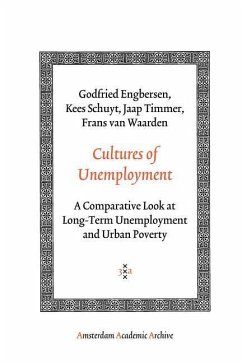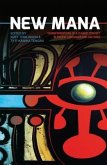In the 1980s a team of Dutch sociologists conducted a study on the daily life of unemployed in the Netherlands. They were inspired by the classical work Marienthal: the Sociology of an Unemployed Community first published in 1933. The authors conducted three neighborhood studies to analyze the social behavior of the unemployed. Based on the work of Robert K. Merton and Mary Douglas they developed a typology of different cultures of unemployment. This typology is still relevant to analyze contemporary reactions to unemployment in European welfare states. The authors also demonstrated that their cultural analysis is fruitful to understand the heterogeneity of urban marginality in the United States. A foreword by U.S. scholar William Julius Wilson emphasizes the universality of the method and the findings presented here.
Bitte wählen Sie Ihr Anliegen aus.
Rechnungen
Retourenschein anfordern
Bestellstatus
Storno









